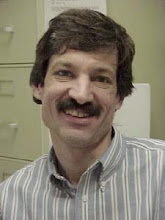Reading an unpublished manuscript by a friend of mine reminded me how important generosity of spirit is in our world. This friend uses Rene Girard's ideas to show connections between Christianity and Buddhism. Generous actions and thoughts toward all other people (and all other living beings)reduces hatred and envy, replacing division with connection. What might this look like in today's world, especially in our divisive culture filled with anger, suspicion, mistrust, and incivility?
I'm not claiming to be a spiritual guru; it's easier to speak these truths than to live them. Perhaps, though, identifying some truths might help me live them out more fully.
As we enter a fierce election season in the United States, can we work together to solve problems in ways that benefit all people? Yes, candidates run to win, and we have to make decisions as voters that will result in victories and defeats. Ultimately, though, our goal should not be the triumph of party, faction, or group. Instead, what will lead to a more equitable society for all people? What will save the planet? What will promote life, liberty, and the pursuit of happiness?
I will end up voting for Democratic Party candidates in 2020, without fail. That's not because I am a team player. I've never considered myself a Democratic Party "member." I'm not rooting for them to win so we can all gloat at the victory party on election night. I will vote Democratic because I look for life, liberty, and the pursuit of happiness for all people on earth. Voting Democratic is only a means to an end. I will have to hold any Democrats who win accountable for their actions. I will critique policies that fall short of the ideals that matter to us as free citizens. I will be happy if some Republicans work hard to reform their party so that it too seeks those ideals. I will be happy if third parties and independent candidates are willing to work toward those ideals.
That's why I dislike the competitive nature of politics, even while being somewhat of a political junkie. I cringe when presidential debates turn into name-calling. I don't want Klobuchar to zing Buttigieg, or Warren to blast Biden, or everyone to ignore Yang. I want a meaningful discussion of issues that matter. I want honestly vetted ideas that will improve everyone's lives. As much as I believe our current President has disgraced the office, I don't want Democratic candidates to stoop to his level. I don't want anyone challenging him to a back alley brawl or engaging in Twitter warfare on his terms.
Moving away from electoral politics, I see applications of these spiritual practices in higher education, my professional setting. Faculty are encouraged to advance professionally, and that can be valuable, but it can also become competitive. I don't need to be promoted at someone else's expense. Faculty and staff should work together to advance the mission of their university or college, which should not be to attain glory in the USA Today ratings or on the athletic field, but to serve students and the larger community, and advance knowledge for the good of the planet. Narrowly construed promotion criteria work against such ideals. Competitive annual reviews and inequitable salary systems also degrade collaborative work. And don't get me started on the negative effects of grades and the competition created among students for limited spots in coveted programs.
Our neo-capitalist socio-economic system also promotes competition, often fierce competition, too often unethical competition. "Free enterprise" might be a good ideal to work toward, but not when it becomes a winner-take-all battle that leads to monopolistic corporations dominating industries and even professions. Freedom is usually illusory. Freedom wrongly conceived promotes the victory of the powerful and the clever, not the good of all. I have not seen a socio-economic system that works well all the time; I've seen evidence of many that work very badly. But in the US, we tend not to know enough about other systems to rightly judge them. We are so immersed in our system that we treat it as natural, as the best. It isn't. We too often blame "socialism" for evils that arise from corrupt politics, power-hungry politicians, military leaders, and business executives, and a global system that promotes inequality.
Whatever solution we come up with in healthcare, for example, should promote the health of all people, not the profit of a few. The same goes for infrastructure, our food supply, our environment, our schools, our housing, and so on. Beware of people who argue for "limited government" or "freedom from excessive regulation" when they usually mean "limit the government from interfering with my profits" and "don't regulate my unfair practices."
Can we work toward a spiritual public sphere, a spiritual politics, a spiritual society? Why not try? We have certainly ended up with an often unspiritual one, even a devilish one. Don't leave spirituality to the religious zealots or the naive spiritual snake oil salespeople.
Saturday, January 4, 2020
Subscribe to:
Comments (Atom)
